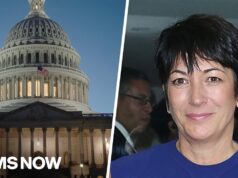The collapse of the Turkish lira was a big worry for investors around the globe this week. The currency crisis came to a head after a feud with the world’s biggest economy, the United States, when President Donald Trump announced the doubling of steel and aluminum tariffs.
On Wednesday, Turkey said it is putting retaliatory tariffs on imports of certain US products. Economists say Turkey’s central bank needs to raise interest rates significantly to strengthen its currency. But that’s something Turkey’s President Recep Tayyip Erdogan doesn’t want to do.
In the meantime, Qatar, a strong ally of Turkey, has pledged $15bn in direct investment in the country.
“For now, we don’t know the details for this investment package, but it’s a sign for both Turkish domestic markets and international markets that Qatar has confidence in the Turkish markets,” reports Al Jazeera’s Sinem Koseoglu, from Turkey’s largest city of Istanbul.
“Of course, Qatar has more investments in Turkey, worth at least $20bn of investments ranging from media, entertainment, infrastructure and financial services projects.”
Emerging market currencies, from India through Argentina to Indonesia, hit major lows in the wake of the crisis. While Turkey’s economy is relatively small, accounting for one percent of global gross domestic product, the recent selloff in its currency sent asset prices lower outside its borders.
After the end of the 2008 global financial crisis, record-low interest rates in the developed world meant it was cheaper for developing nations to borrow in dollars or euro. About $40 trillion was added to the debts of emerging markets since then, according to the Institute of International Finance.
Erdogan has spoken about a reorientation east..but in the end, 2/3 of Turkey’s trade, investment and financing is from the West. So whatever Erdogan may say about this reorientation…ultimately what happens in Turkey will be determined by his ability to encourage international banks and investors to keep their money in Turkey.
Timothy Ash, senior strategist, BlueBay Asset management
However, because central banks like the US Federal Reserve aren’t keeping rates low any more, it’s now costing developing countries a lot more to repay their debts.
According to Timothy Ash, a senior strategist with BlueBay Asset management, Turkey still faces big challenges ahead. “The economy is still overheating, there’s big pressure from inflation, policy credibility is still pretty low, and they still have their issues with the US that really needs resolving.”
This seems to be part of a worldwide trend with emerging markets.
“We came into the year with the expectation of federal policy tightening. We saw some policy errors in Argentina and Turkey, and a combination of individual country stories that have been quite challenging, plus fed tightening, and obviously a difficult geopolitical backdrop, and with Trump on trade – that’s made people somewhat nervous around emerging markets,” explains Ash.
“Big foreign exchange moves puts the spotlight on countries with large external debts – there’s been a lot of pressure on Turkey, but they’ve survived so far. Countries are riding through it so far, but it depends on if we see a further deterioration on US-China trade relations, whereby global growth will begin to suffer.
“Erdogan has spoken about a trade reorientation east, given the challenges of the US relationship. The Qatari support is useful but in the end, two-thirds of Turkey’s trade, investment and financing is from the West. So, whatever Erdogan may say about this reorientation, it’s really important to normalise the relationship with the West because ultimately what happens in Turkey will be determined by his ability to encourage international banks and investors to keep their money in Turkey.”
South Africa’s rand takes a beating
Although apartheid ended almost 25 years ago, South Africa remains one of the most unequal countries in the world. That has made matters like land rights a burning issue.
South Africa’s President Cyril Ramaphosa is staking his reputation on trying to revive the economy in advance of next year’s national elections. But a recent plan to overhaul how land is owned in the country has alarmed some investors.
John Ashbourne, an analyst at Capital Economics, looks at how land reform is hitting Africa’s most developed economy.
Also on this episode of Counting the Cost:
Argentina interest rates: Argentina, which already has the highest interest rates in the world, has decided to raise them even higher. On Monday, it raised interest rates by five percent to a record 45 percent. The central bank is trying to combat a currency selloff. Concerns over a local corruption scandal and this week’s turmoil in
– Subscribe to our channel: http://aje.io/AJSubscribe
– Follow us on Twitter: https://twitter.com/AJEnglish
– Find us on Facebook: https://www.facebook.com/aljazeera
– Check our website: https://www.aljazeera.com/



